“I nonetheless return to movies like Yaadon Ki Baraat or Jugnu. I’m unsure whether or not I used to be uncovered to good cinema or not. Let’s say I used to be uncovered to what I assumed was
good cinema.”
Now, sitting comfortably in his workplace, Ram lights up as he talks about his ardour for storytelling. Reflecting on how cinema has modified over time, he shares, “Films have been by no means a solo expertise. Again once we have been youngsters, we cherished munching popcorn and guzzling sodas, and right this moment, the very first thing we do is order meals. In order that outdated feeling is coming again; it’s about being a part of a neighborhood, laughing, crying and sharing these huge moments collectively. Cinemas are extra like get together halls.” He factors to the success of movies like Laapataa Girls and twelfth Fail, the place audiences are moved by the shared feelings of the story. “Films like Laapataa Girls and twelfth Fail are working as a result of there’s a sure catharsis that you simply get while you’re laughing or crying collectively, which you’ll be able to’t get in case you’re alone. Even Neerja labored as a result of folks may really feel the tragedy collectively.”
That sense of togetherness is central to Ram’s personal work. Whether or not it’s Neerja or Aarya, his tales usually centre round common values that resonate with everybody. “I need to attain out to folks from all walks of life,” he says. His tasks at all times carry a deeper message. Neerja’s mantra was, “Jeete hain chal,” or Aarya’s exploration of karmic dilemmas.
“I even sprinkle in slightly philosophy. Sanskrit shlokas, Kabir’s verses…to make the tales join on a deeper, cultural stage,” he provides with a smile. “I attempt to hold it entertaining, although, not preachy.” he laughs and provides, “Additionally, the unhealthy guys… They at all times get their comeuppance in my tales. And this I’ve realized from the movies I’ve watched. There was at all times this shot of Central Jail in direction of the top.” He says it was all very naive or idealistic, however that’s one thing it’s a must to give to the viewers. “If Aarya has performed mistaken, even when she’s doing it to guard her kids, she’ll nonetheless get it in the long run as a result of karma works like that. That’s one thing I present in my work. I should be doing one thing proper as a result of folks have taken to it.” He provides that his group helps him in ensuring the top product stays non-preachy. “You don’t want to evangelise, really, as a result of folks know the great vs evil tales of their bones. You must give them slightly nudge, that’s all. And so they’ll instantly join. For instance, a mom’s intuition to guard her kids,” he states.
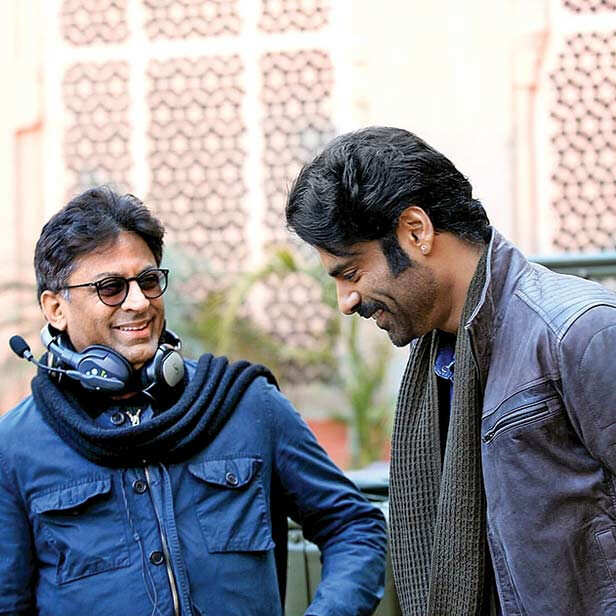
On the subject of selecting which tales to inform, Ram focuses on inclusivity. He remembers a dialog with filmmaker Sooraj Barjatya after Neerja received the Filmfare Award. “He mentioned he had watched Neerja two instances together with his household. Coming from him, it felt like a form of blessing.” Barjatya additionally complimented Ram for reaching out to folks of all ages and backgrounds. “Whether or not you’re younger or outdated, male or feminine, cinema needs to be one thing everybody can relate to. Soorajji mentioned TVs belong to the lounge and never the bed room, and that’s my philosophy too. One should make one thing that one can simply watch with one’s complete household with out embarrassment.”
As we dive into his directing model, Ram shares his extra relaxed method on the set. In contrast to conventional administrators who shout “Motion!” to kick off a scene, he prefers to let issues unfold naturally. “I discover ‘motion’ a bit jarring. It modifications the vibe. I prefer to let life occur organically,” he says. His taking pictures model is easy: minimal lighting, a number of cameras and pre-rolls to seize the perfect moments. “My job is to encourage my actors and create an setting the place they will shine.
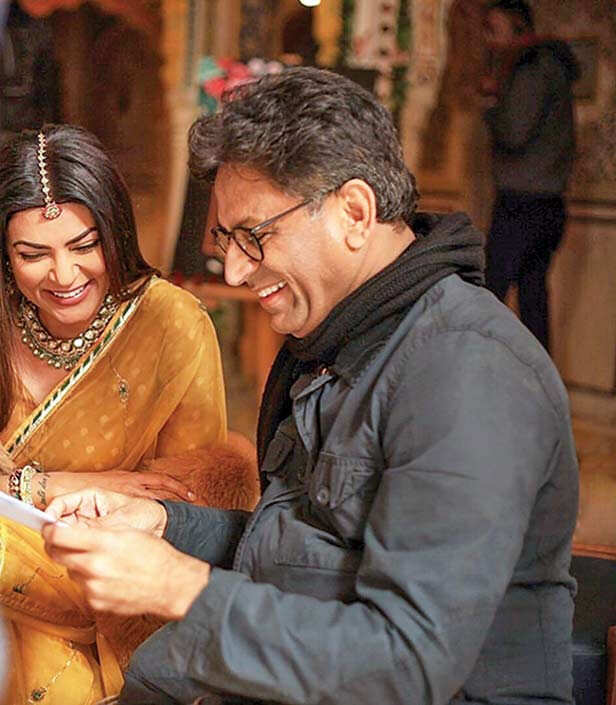
I don’t know learn how to act. I don’t know learn how to give good music or edit. However I do know learn how to lead a group. I understand how to succeed in out to folks. To make them calm down. I understand how to inspire them to present me their greatest. And that’s greatest performed by giving all of them a soothing setting to work in.” Films price cash and he makes certain everybody he works with is aware of that. So every day on his units, everybody will get a name sheet itemizing the per-minute price. That motivates them to not waste time. “You are taking a chai break or a cigarette break or need to lengthen your lunch by 10 minutes. Positive. However when you’ve the numbers in entrance of you, then self-discipline kicks in,” he asserts. He doesn’t like taking pictures night time shifts. He’s not a type of administrators who shoots all through the night time. “My night time shifts are from seven to 12 or, at most, until one a.m. I don’t suppose our minds perform correctly after that. We have to relaxation at night time.” He provides he had a tough time taking pictures the night time scenes in Neerja, nevertheless it was one thing he couldn’t keep away from due to the constraints of the script.
He was an advert filmmaker earlier than he began making movies and says directing commercials has made him deal with his target market. He provides the instance of Neerja, which began off as a hijack drama however, in the long run, grew to become a mother-daughter movie that drew within the crowd. “From a thriller, it grew to become a movie a few household grieving the lack of a daughter. That emotional connection bonded it with the lots. Likewise, with Dhamaka, I used to be interesting to the hustle tradition. My protagonist was somebody who would do something to get forward. It was one thing that the youth associated to.”
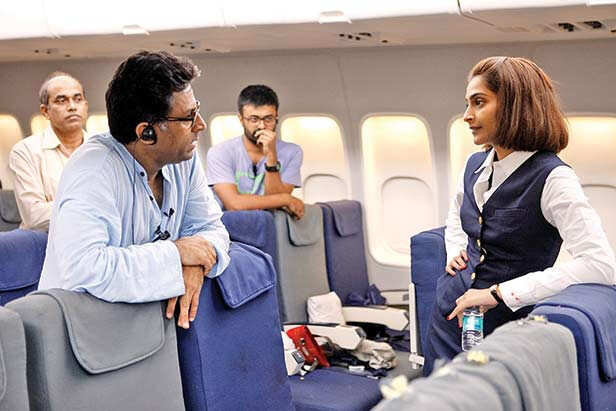
Though he loves storytelling, taking pictures is the one a part of the method he doesn’t get pleasure from as a lot. “Capturing is disturbing. Every single day is hard for me. I like writing, enhancing and music however taking pictures? That’s the problem,” he admits. Music, nonetheless, is one other story. “Music is my co-actor. It helps set the tone without having any dialogue,” he says. He remembers how the music in Aarya conveyed a lot in regards to the story without having to be excessive. “I by no means use reference tracks,” he provides. “I let my music administrators create authentic scores earlier than we even begin taking pictures.”
Ram’s private connection to music has deepened over time. He just lately started studying people singing, with a particular deal with Kabir’s songs, that are additionally making their manner into his future tasks. “I’ve began studying to sing. And my trainer, Shruti Vishwanathan, is a people singer. So I’m studying people songs now. I like singing Kabir. And I’ve been studying guitar for a while now,” he reveals.
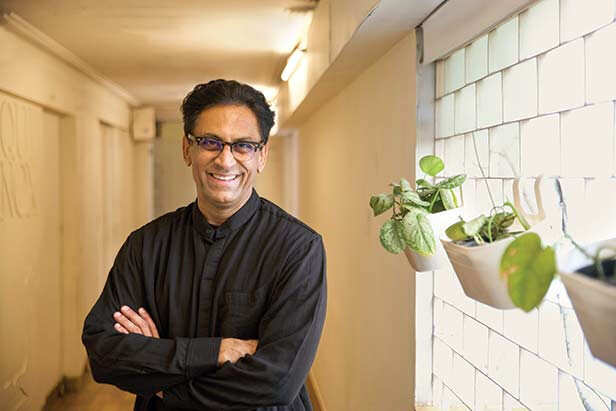
Subsequent on his horizon is The Waking of a Nation, a courtroom drama set across the aftermath of the Jallianwala Bagh tragedy. “It’s not simply in regards to the bloodbath, however the six months that adopted, when a fee investigated why it occurred,” he explains. It’s a heavy matter however Ram’s potential to carry a recent perspective guarantees to make it each participating and insightful.
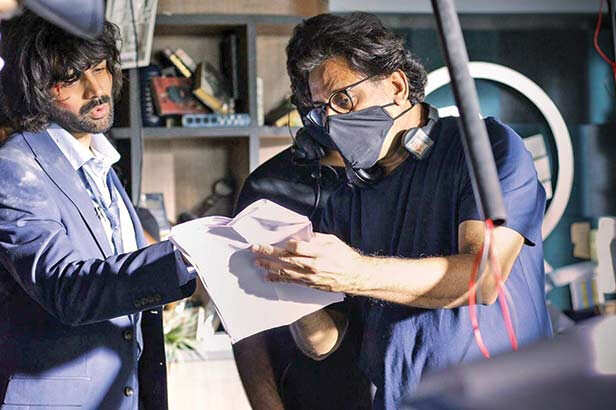
On the subject of casting, Ram believes the perfect collaboration occurs when an actor is genuinely excited to work with him. “Casting is in regards to the actor’s alternative, not mine. Once they need to work with me, that’s what issues,” he says with a smile. One casting success that stands out is the legendary Shabana Azmi, who performed Neerja’s mom. “She was so dedicated. Her mom was within the hospital whereas we have been taking pictures Neerja, but Shabana ji was so targeted. The primary time she carried out the ultimate speech, I used to be moved to tears. That’s the magic of her expertise.”
As he continues to steadiness each business attraction and significant narratives, Ram Madhvani’s work is a shining reminder of how cinema, at its greatest, is not only about leisure; it’s about coming collectively and experiencing one thing highly effective and transformative.
